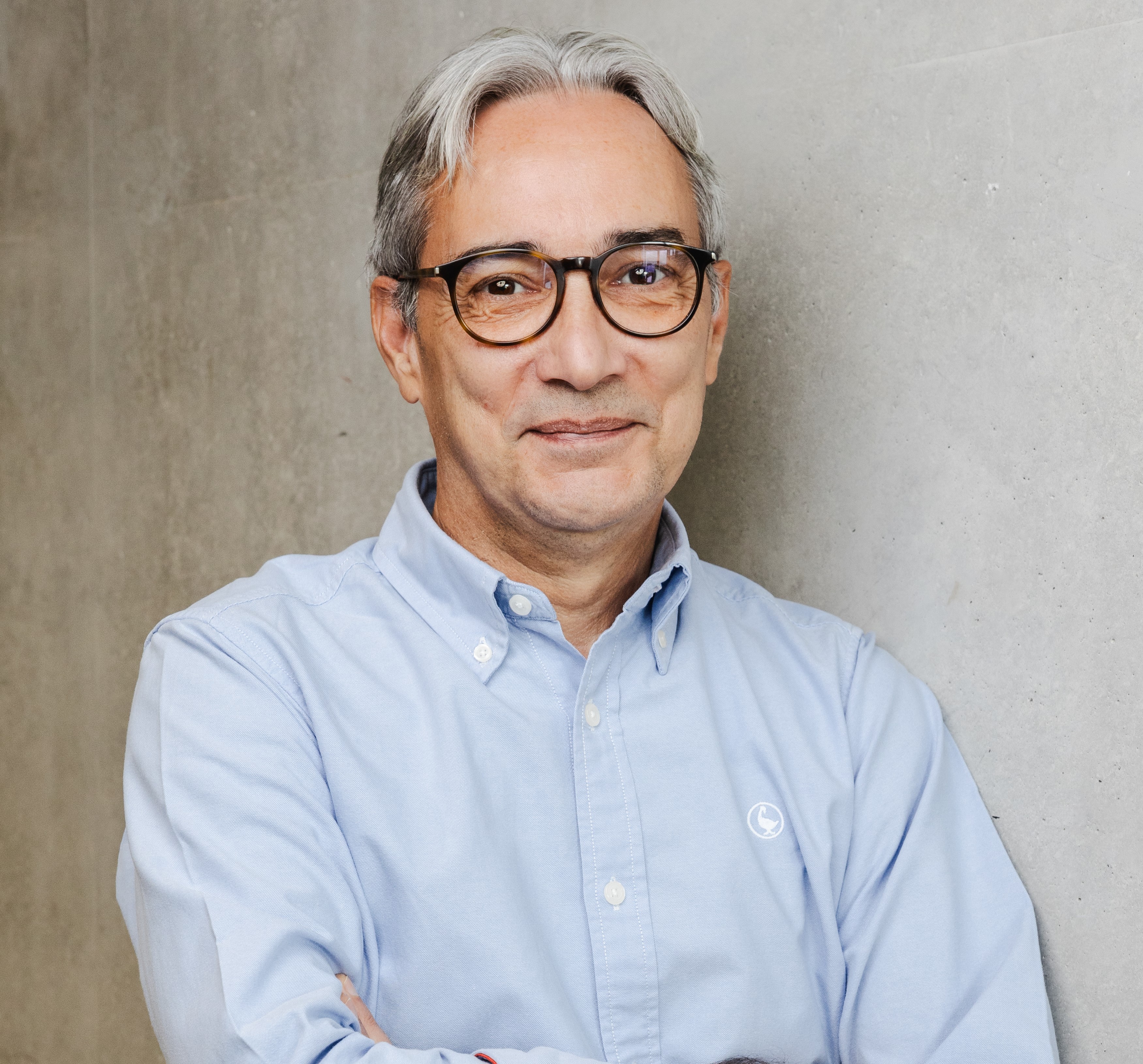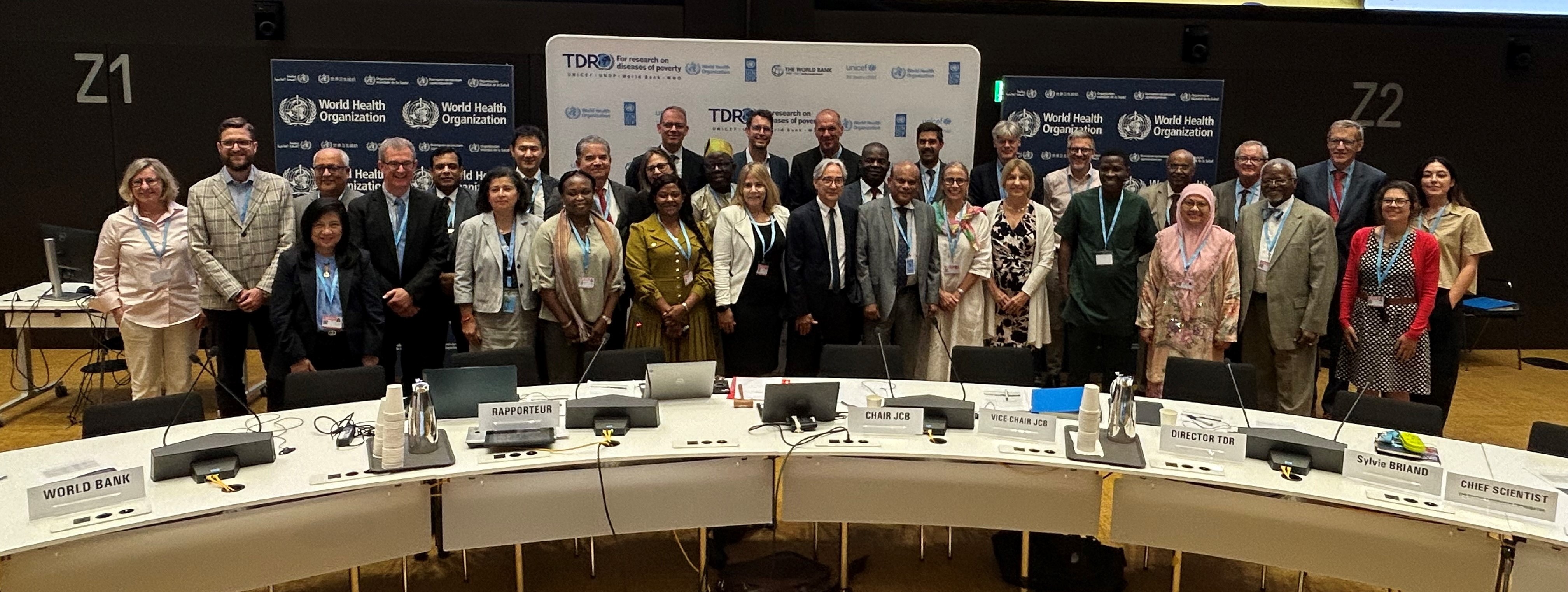TDR’s Joint Coordinating Board (JCB) expressed appreciation for Dr John Reeder’s 13 years of distinguished service as Director of TDR and elected Dr Dirk Mueller as new Chair.

Credit: TDR / A. Tardy
As head of TDR, Dr Reeder reoriented the Programme to focus on supporting implementation research (IR) and strengthening the capacity of countries to conduct IR. He has widened TDR’s partnership with research and training institutions in low- and middle-income countries to build up the next generation of research and global health leaders. As the architect of the current TDR Strategy 2024-2029, Dr Reeder has ensured that TDR addresses the pressing global health challenges of today and tomorrow, using a One Health approach.
"Under your leadership, the results that TDR has shown have made it easy for us to demonstrate why our support for TDR is critical and needs to continue,” said Dr Dirk Mueller, Senior Health Adviser at Foreign, Commonwealth & Development Office of the United Kingdom of Great Britain and Northern Ireland. “When you look at where TDR is now, you couldn’t be more proud of what you’ve achieved.” Dr Mueller was elected new Chair of JCB, succeeding Dr Sunil De Alwis, Former Additional Secretary (Medical Services) at the Ministry of Health and Indigenous Medicine Services of Sri Lanka.
“The incredibly prudent, forward-looking and results-focused management culture John has instilled in TDR is remarkable. The UN needs more leaders like John,” said Dr Mandeep Dhaliwal, Director of the HIV, Health & Development Group at the United Nations Development Programme, one of TDR’s four co-sponsors.

TDR Joint Coordinating Board members. Credit: TDR
TDR welcomed Dr Sylvie Briand as WHO’s new Chief Scientist and TDR Special Programme Coordinator.
“It is very gratifying to see how the work done by TDR in helping strengthen research capacity in countries and engaging in various implementation research efforts has demonstrated the importance of investing in countries and the resilience of their health systems,” said Dr Briand.
Under WHO’s current reorganization, TDR will continue to be hosted by WHO’s Science Division, led by Dr Briand. JCB members reiterated the value of TDR’s independence as a Special Programme, which allows it to be governed and financed separately from WHO. TDR is fully implementing its workplan this year and has a solid outlook for the coming two years, despite a difficult funding environment.
JCB members also brainstormed possibilities for TDR to further contribute to the future of global health and global health research.
During the second day of the meeting, TDR partners from Benin, Mali and India shared their experiences collaborating with TDR. Professor Dissou Affolabi, Coordinator of the National Tuberculosis Programme of Benin, presented lessons learned from West and Central African countries’ regional approach to enhancing tuberculosis research.
Professor Seydou Doumbia, Director of the University Clinical Research Center at the University of Sciences, Techniques and Technology of Bamako, Mali, spoke about strengthening implementation research capacity in francophone Africa.
Dr Piyusha Majumdar, Associate Professor at the Indian Institute of Health Management Research (IIHMR) in Jaipur, India, spoke about nurturing changemakers through implementation research training.
For more information, please contact Dr Garry Aslanyan, Manager, Partnerships and Global Engagement, TDR.

